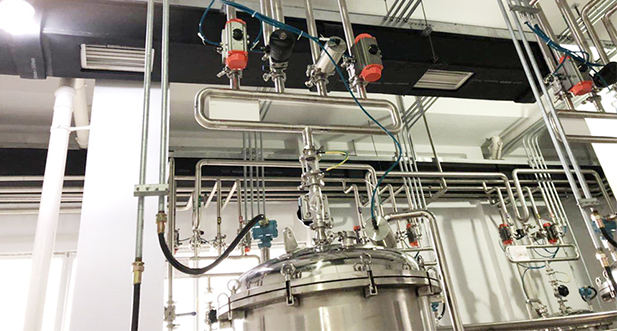Surface finish quality is one of the most critical yet often underestimated aspects in the selection and application of stainless steel MP pipe. In systems where fluid purity, contamination control, and corrosion resistance are essential, surface finish directly affects how a pipe will perform—not just during installation, but throughout its service life. For high-purity process environments like semiconductors, pharmaceuticals, and ultra-clean chemical delivery, a controlled and consistent surface finish is not optional—it’s a requirement backed by real operational needs.
The designation “MP” in stainless steel MP pipe refers to mechanical polishing, which involves the controlled removal of material from the pipe’s internal surface using abrasives. This process helps achieve a smoother finish with lower surface roughness (Ra value), typically around 20 µin (0.5 µm) or better. Why does this matter? Because smoother surfaces reduce the number of microscopic crevices where contaminants, moisture, and microorganisms can hide or accumulate. These features are critical in systems designed to move ultra-pure water, reactive gases, or sterile media.
Ra value alone doesn’t tell the whole story. The profile of a surface may meet roughness requirements numerically, but the presence of directional grinding marks or inconsistent polishing can still pose performance issues. That’s why both Ra and the texture pattern are evaluated in high-spec MP pipe. A consistent, uniform finish promotes laminar flow, minimizes turbulence, and supports more effective system cleaning and sterilization. This becomes especially important in cleanroom environments, where particle shedding and residue accumulation must be minimized.
Different applications may require different surface finishes. Standard mechanically polished MP pipe may be sufficient for general fluid transport, while higher-end applications often demand electropolished (EP) versions. While EP pipe undergoes additional electrochemical treatment to enhance smoothness and passivation, the foundation of a good EP finish still depends on high-quality mechanical polishing during the MP stage. This means even if your final product is EP-treated, starting with precision MP pipe is critical.

In pharmaceutical and biotech systems, a controlled surface finish is essential for preventing bacterial growth and ensuring compliance with GMP and validation protocols. In semiconductor fabs, the internal finish of the pipe must meet strict standards like SEMI F20, which governs maximum allowable particle and hydrocarbon contamination. If surface roughness exceeds specification or shows inconsistent polishing, fluid systems may become unstable or introduce yield-killing defects. This is where our stainless steel MP pipe offers the kind of reliability customers can count on.
Achieving and maintaining high surface finish quality requires advanced equipment and tight process controls. We use multi-stage mechanical polishing lines equipped with real-time surface monitoring and strict process calibration. This ensures that every length of stainless MP pipe we ship meets a consistent standard of polish and cleanliness. Inspection protocols—including visual checks under magnification and profilometer readings—further verify that the finish supports the required application environment.
Handling and storage also affect surface finish integrity. Even a well-polished pipe can be compromised if exposed to dust, fingerprints, or surface abrasion after production. That’s why we package our stainless steel MP pipes using protective sleeving, cleanroom-grade materials, and moisture control barriers. By preserving the finish through transport and delivery, customers receive pipe that is truly ready for integration into critical systems without the need for reprocessing or additional cleaning.
There’s a direct relationship between surface finish and process reliability. A better internal finish reduces the risk of fluid residue, makes cleaning cycles more efficient, and extends the lifespan of the piping system. In pressurized or temperature-sensitive processes, it also reduces stress concentration points that might otherwise become sites of corrosion or failure. Investing in well-finished MP pipe isn't just about meeting specifications—it's about building systems that last longer and perform more consistently.
As a manufacturer with years of experience in stainless steel MP pipe production, we know that the smallest surface details can have the largest impact on system-level performance. We’re not just supplying pipe—we’re delivering reliability, cleanliness, and consistency at every stage. That’s why so many of our customers come back to us when precision and purity matter most.
If you're seeking a supplier that understands the technical demands of high-purity fluid systems and delivers MP pipe you can rely on, we’re ready to support your project. Quality isn’t just what we offer—it’s built into every meter we produce.




 English
English русский
русский








